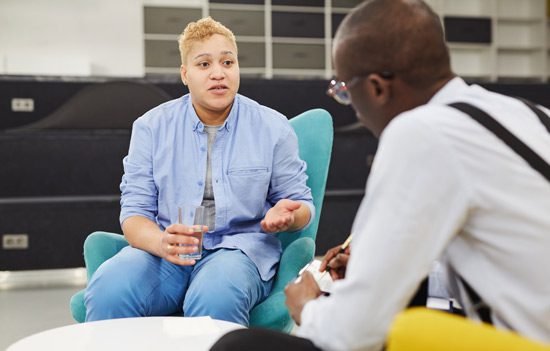Depression can be a scary diagnosis to receive. Thankfully, a number of treatment options can help people manage their depressive symptoms.
Age Matters
According to the American Psychological Association, a person’s age makes a difference in how their depression might be treated.
- Children are less likely than adults to be prescribed medications for depression because of a lack of evidence showing their effectiveness. Talk therapy modalities like cognitive-behavioral therapy (CBT) and interpersonal psychotherapy for adolescents (IPT-A) are more likely to be used.
- Adults with depression are more likely to be given medications and also have a wider range of therapy options, including:
- Behavior therapy
- Cognitive therapy
- Cognitive-behavioral therapy (CBT)
- Interpersonal psychotherapy (IPT)
- Mindfulness-based cognitive therapy (MBCT)
- Psychodynamic therapy
- Supportive therapy
- Older adults are more likely to have trouble remembering if they have taken a medication and are at greater risk for accidentally overdosing by unknowingly taking a medication twice, so the APA recommends that older adults with depression receive medications less likely to harm them. Therapy options recommended for older adults include:
- Cognitive-behavioral group therapy (Group CBT)
- Interpersonal therapy (IPT)
- Group-Life review/reminiscence therapy
Common Medications
A number of different categories of medications can be used to treat depression. The Mayo Clinic lists the following options:
- Selective serotonin reuptake inhibitors (SSRIs) – Doctors often begin by prescribing SSRIs, as they typically have fewer unpleasant side effects.
- Serotonin-norepinephrine reuptake inhibitors (SNRIs)
- Atypical antidepressants
- Tricyclic antidepressants – These drugs can be very effective, but can also cause more severe side effects, so they aren’t usually prescribed until other meds fail.
- Monoamine oxidase inhibitors (MAOIs) – These can also have serious side effects, so aren’t typically used until other meds have been shown not to work. MAOIs can have serious, even fatal, interactions with foods, medications, and herbal supplements.
- Other medications. Other medications may be used to enhance the benefits of antidepressants. Doctors sometimes combine two antidepressants or add mood stabilizers or antipsychotics. Anti-anxiety and stimulant medications may also be added for short-term benefits.
Regardless of what medications are prescribed, a person with depression should not abruptly stop taking their medicine without first talking to their doctor, as this can trigger withdrawal-like symptoms in some cases or even cause the depression to worsen.
Brain Stimulation Therapies
The National Institute of Mental Health lists three depression therapies that involve brain stimulation. These options are not typically available until medication options have been exhausted because they can have severe side effects, like memory loss:
- Electroconvulsive Therapy (ECT) – electrical impulses are sent into the brain
- Repetitive Transcranial Magnetic Stimulation (rTMS) – magnets are used to activate parts of the brain
- Vagus Nerve Stimulation – a device implanted under the skin sends electrical impulses to a nerve near the brain stem
Helping Yourself Cope
The treatments above can be great ways to treat depression. As a complement to medication and therapy, lifestyle changes can also have a significant effect on depression. According to WebMD and the Mayo Clinic, people with depression can improve their success in recovery by:
- Avoiding alcohol and recreational drugs – These may prevent your medications from working effectively.
- Addressing the stress – Meditation, exercise, journaling, deep breathing, and other techniques can be used to deal with the difficult feelings caused by relationship issues, money concerns, and work problems.
- Practicing good sleep habits – If you have trouble sleeping, research ways to address your sleep barriers and talk to your doctor or therapist.
- Getting regular exercise – You don’t have to run a marathon. Going for a walk, gardening, or swimming are all good options.
- Setting goals – It’s good to have something to look forward to and to have a sense of accomplishment.
- Eating healthy – Just as important as the medicine you put into your body is the fuel you feed it.
- Trying something new – New experiences, especially if they are something you can look forward to, can be helpful in elevating mood.
With the right combination of medications, therapies, and lifestyle changes, recovery from depression is possible. If you or someone you love needs help on the path to mental health and wellness, Highland Hospital is here to help.






